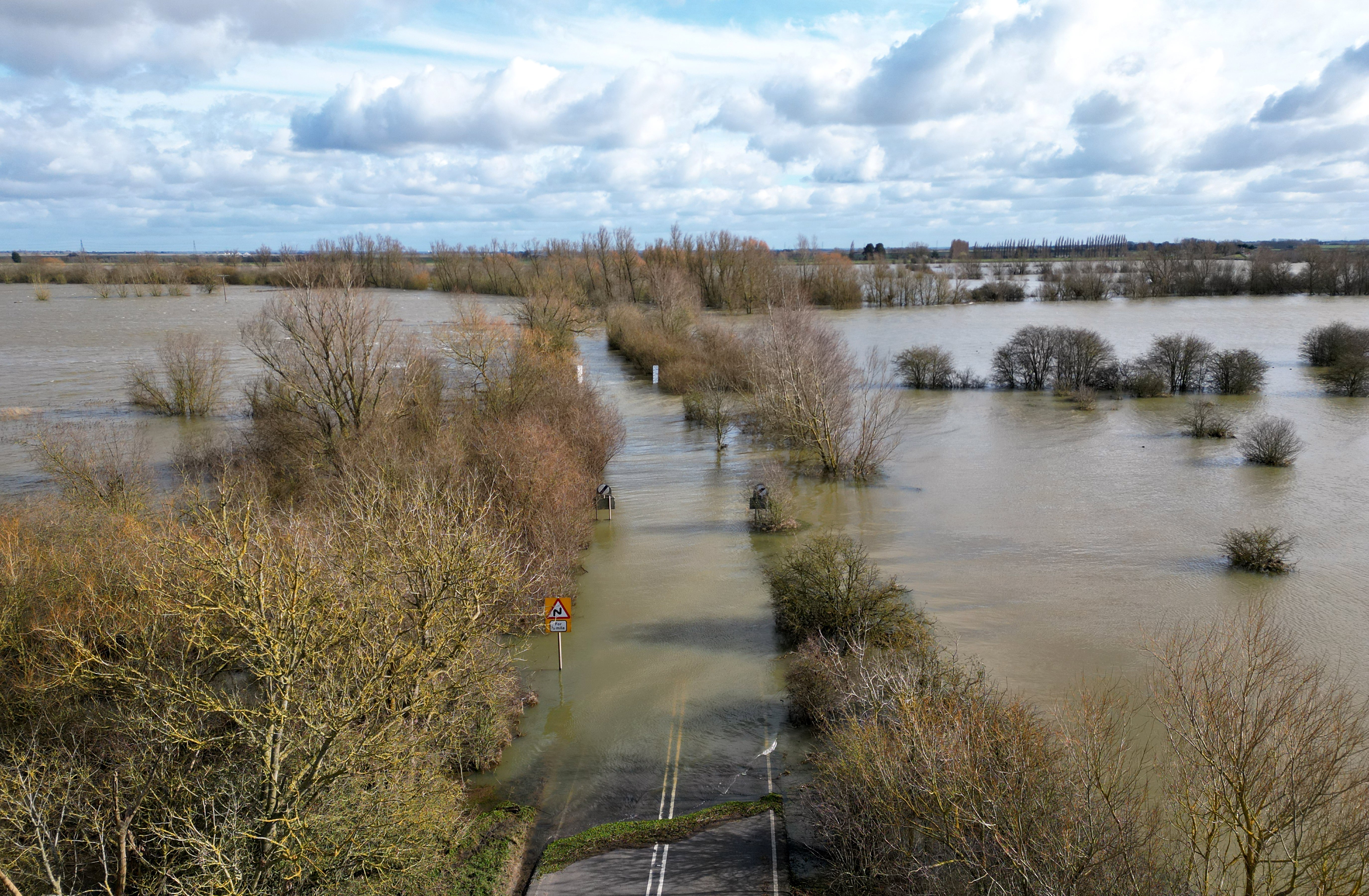Climate crisis is making UK winters even wetter, scientists warn
Average rainfall on stormy days becoming around 20 per cent heavier, study says
Human-induced climate change has made downpours and rainfall across the UK and Ireland more intense with the region facing wetter winters in future, scientists warned.
The World Weather Attribution study found rainfall during storms across the UK and Ireland between October 2023 and March 2024 was made 20 per cent heavier by global warming.
The UK and Ireland saw 13 to 14 severe storms in 2023-24, which caused 13 deaths and widespread damage across the two countries - with similar heavy rainfall ten times more likely in future.
Royal Netherlands Meteorological Institute researcher Sarah Kew, who contributed to the study, said: “Autumn and winter rainfall has become much heavier, bringing more damaging and sometimes deadly floods to urban and agricultural areas.
“Until the world reduces emissions to net zero, the climate will continue to warm, and rainfall in the UK and Ireland will continue to get heavier.”

The storms led to severe and repeated flooding and power outages, disrupted travel, caused the loss of crops and livestock, and left farmers with waterlogged fields.
The Met Office said the south of England had its wettest February in a time series going back to 1836, with many parts of the region recording well over twice the average rainfall for the month.
Meanwhile, East Anglia has experienced both its warmest and wettest February on record, with an average of 106.4mm of rainfall across the month, beating the previous record of 95.2mm set in 1916, and a mean temperature of 8.2C, surpassing the previous record of 7.6C set in 1990.
The UK as a whole experienced its second warmest February, with a mean temperature across the month of 6.3C, behind the record of 6.8C set in 1998.
Where it would have occurred about once every 50 years in the pre-industrial period, in today’s world, similarly intense storm rainfall was expected to occur around every five years.

The study also looked at the total rainfall for October to March, which was the second wettest such period on record for the UK and the third wettest for Ireland, and found climate change had increased rainfall over the season by 6 per cent to 25 per cent.
Friederike Otto, senior lecturer in climate science at Imperial College London, added: “To put it bluntly, climate change is already making life shittier.
“Wetter winters are flooding farms, cancelling football matches, and overflowing sewage systems. Groceries are becoming more expensive and Brits holidaying in Europe are having to shelter from record-breaking heatwaves and wildfires.
“Thankfully, we know the solutions – replace oil, gas and coal with cleaner, cheaper renewable sources of energy, insulate homes, restore nature. All this will make life cheaper and better for all, not more expensive.”
Flood insurance claims in the UK reached a record £573 million from the successive storms, but low-income families were less likely to be insured, and there were multiple costs involved in clearing up from flooding.
Join our commenting forum
Join thought-provoking conversations, follow other Independent readers and see their replies
Comments
Bookmark popover
Removed from bookmarks